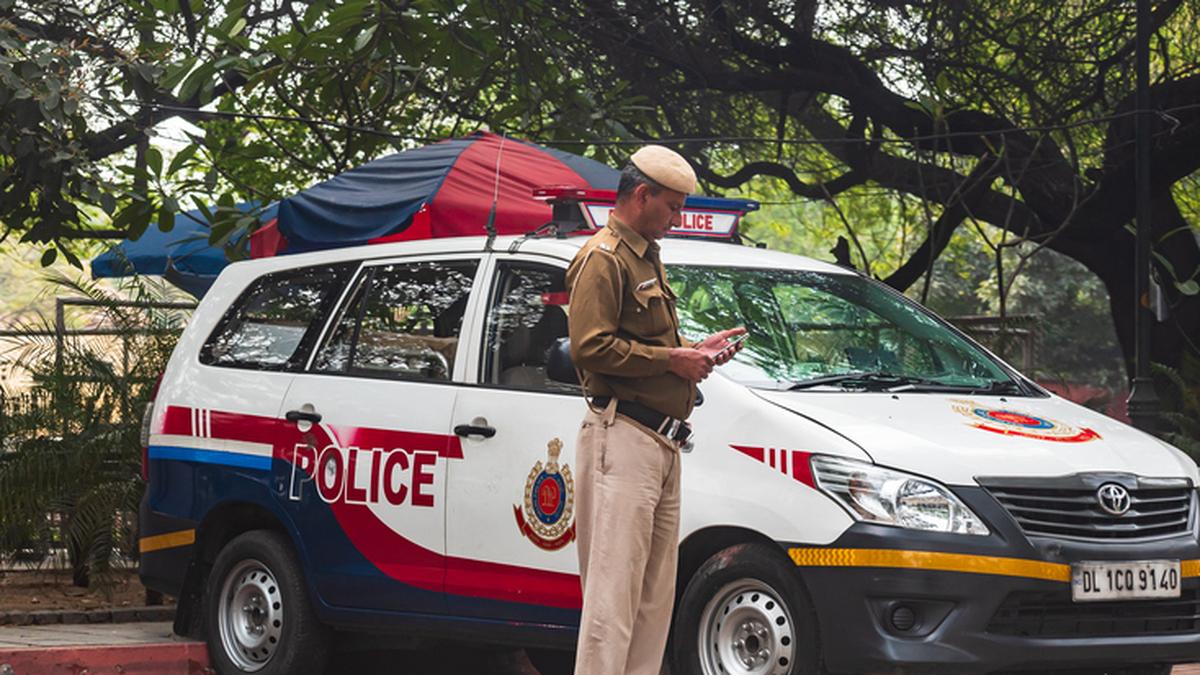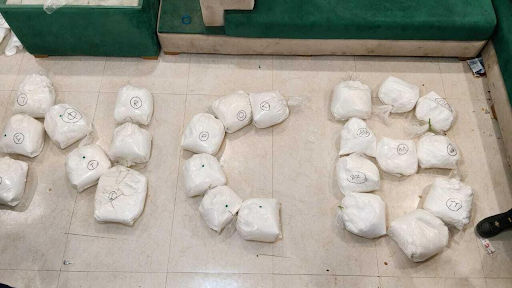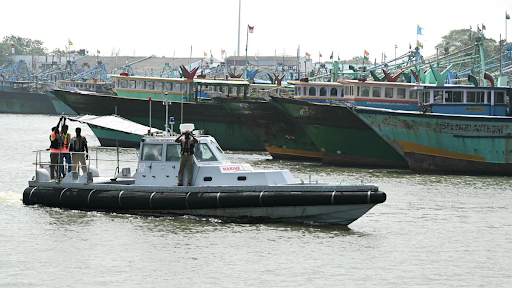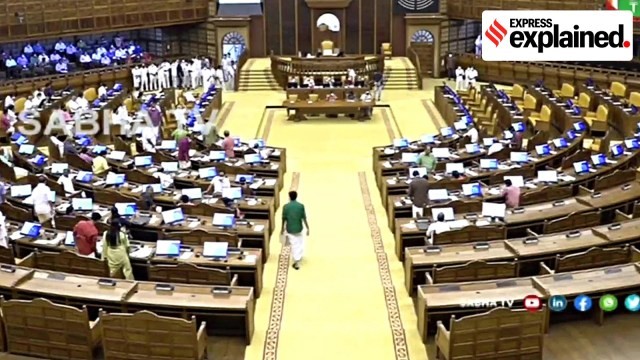Description
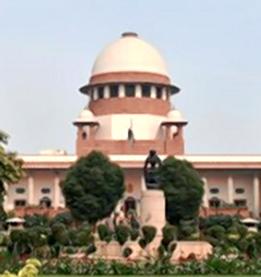
Context: A three-judge Bench of the Supreme Court clarified that a person who “is or continues to be” even a “mere member” of a banned organisation is liable to be found criminally liable under the Unlawful Activities (Prevention) Act (UAPA) for acting against the sovereignty and integrity of India.
Details:
- With this judgment, the Supreme Court has set aside a series of its own judgments which had concluded that “mere membership” — unlike “active membership” — of an unlawful association or organisation did not make a person criminal or a terrorist.
Provisions:
- The declaration of an organisation or association as unlawful is publicly notified by the Centre under Section 3 of the UAPA.
- This naturally leads to the conclusion that every member of the organisation would know about the ban, the court reasoned.
- But a person choosing to continue as a member despite knowing about the ban is acting against the sovereignty of the nation.
- The judgment referred to Section 10(a)(i) of the UAPA which deals with membership of an unlawful association.
- The provision says that “where an association is declared unlawful by a notification issued under Section 3 which has become effective under sub-section (3) of that section, —(a) a person, who — (i) is and continues to be a member of such association shall be punishable with imprisonment for a term which may extend to two years, and shall also be liable to fine”.
- The court referred to Article 19(4), which mandated that the citizens’ right to form unions or associations was subject to the power of the state to make laws to impose “reasonable restrictions” in the interests of the sovereignty and integrity of India or public order or morality.
About the law:
- The UAPA was originally enacted in 1967. Indira Gandhi was the prime minister.
- The law has undergone over half-a-dozen amendments, the last one in 2019.
.jpeg)
History:
- The UAPA originated from a constitutional amendment enacted in 1963 on the recommendation of the National Integration Council (NIC).
- The amendment allowed Parliament to make laws imposing restrictions on the fundamental rights to freedom of expression, to assemble without arms and to form associations.
- The 1967 version of the UAPA gave the central government the power to deal with activities directed against the sovereignty and integrity of India.
- Terrorism was not yet covered under the UAPA.
|
Terrorist actions were principally dealt with under the now-repealed Terrorist and Disruptive Activities (Prevention) Act, 1987 (‘TADA’) and the Prevention of Terrorism Act, 2002 (‘POTA’) prior to the drafting of UAPA. The constitutional legitimacy of both TADA and POTA has been challenged several times throughout the years.
|
- In December 2004, Parliament inserted a chapter dedicated to punishing terrorist activities.
- Further amendments were made to the UAPA in 2008 and 2009 in the aftermath of the 26/11 Mumbai terror attacks.
- More amendments were made in 2012 and 2019 to expand the scope of the UAPA.
- Now, the UAPA covers terrorism, money laundering for terror financing and designation of groups as well as individuals as terrorist.
Need: Aims to prevent illegal activities in India. Its principal goal is to give authorities the power to deal with acts that threaten India’s integrity and sovereignty
Important Provisions:
- Section 15 of the Act: centre has the authority to designate any person as a ‘terrorist’.
- Section 22A of the Act: Companies and organisations found to be involved in any type of illegal or terrorist activity would be held liable.
- Act enables any inspector rank officer of the National Investigation Agency to investigate any type of unlawful activity as provided under Chapters IV and VI of the Act.
- The Investigating Officer has also been given the authority to conduct raids, and if a seizure is made, he must notify the state’s designated officer within 48 hours after the raid.
- In the event that any property or cash is suspected of being used for terrorist activities or by a terrorist organization, the investigating agency has the authority to seize the cash or property and deliver it to the designated officer within 48 hours.
- If a person identified as a terrorist fears that the law may be used against him, he or she has the right to file an appeal with the Home Ministry, which must respond within 45 days.
- The individual may also appeal to the review committee, which will be composed of retired/current judges and secretaries of the Central Government.
- If an individual believes he or she has been wronged, he or she may file a complaint with the high court or the Supreme Court.
- The Act defines a terrorist act as one that occurs within the scope of any of the treaties specified in the Act’s Schedule.
- Sections 4 and 5 (Dealing with the Tribunal):
- The Central Government may establish, as and when necessary, a tribunal known as the Unlawful Activities (Prevention) Tribunal, consisting of one person chosen by the Central Government.
- For the purpose of conducting an inquiry under this Act, the Tribunal shall have the same powers as a civil court under the Code of Civil Procedure, 1908, when deciding a case.
- The Consolidated Fund of India will cover all expenses incurred in connection with the Tribunal.
Scope:
- It extends to the whole of India.
- Every individual shall be punished under this Act for any act or omission that is in violation of its provisions and for which he is found guilty in India.
- Any person who commits an offence punishable under this act outside of India shall be dealt with in accordance with the provisions of this Act as if the act had been done in India.
- This Act’s provisions also apply to:
- Citizens of India and those from other countries.
- People who work for the government.
- This Act also applies to those aboard ships and planes registered in India.
Criticism:
- The terror law makes bail difficult.
- It extends the pre-chargesheet custody period from 90 days to 180 days.
- The UAPA restricts the right to bail and makes the court depend on police documents to presume guilt of the accused.
- The conviction rate in the UAPA is dismal. According to the Union home ministry’s data given to Parliament in March this year, 2.2 per cent of cases registered under the UAPA between 2016 and 2019 resulted in conviction by courts.
- The freedom of the press is another crucial freedom that this legislation restricts, leading to the arrest of prominent journalists for publicly criticising the government’s policies or any other similar topics. UAPA has generated debate over Freedom of Speech and Expression since 2019.
- Use of Section 39 of the UAPA, which punishes someone for aiding terrorist operations anywhere in the country with a fine or a jail sentence of up to 10 years or both, has become a freshly baked problem.
- The Freedom of Speech and Expression as guaranteed by Article 19(1) of the Constitution is directly restricted by the amended Section 35 of the Act. According to the clause, Indian government may add any group to the UN charter’s Chapter 7 that it deems to be a terrorist organisation. This gives the government the authority to restrict people’s Freedom of Speech and Expression.
The UAPA (Amendment) Act, 2019:
- Who may commit terrorism:Under the Act, the central government may designate an organisation as a terrorist organisation if it: (i) commits or participates in acts of terrorism, (ii) prepares for terrorism, (iii) promotes terrorism, or (iv) is otherwise involved in terrorism. The Bill additionally empowers the government to designate individuals as terrorists on the same grounds.
- Approval for seizure of property by NIA: Under the Act, an investigating officer is required to obtain the prior approval of the Director General of Police to seize properties that may be connected with terrorism. The Bill adds that if the investigation is conducted by an officer of the National Investigation Agency (NIA), the approval of the Director General of NIA would be required for seizure of such property.
- Investigation by NIA: Under the Act, investigation of cases may be conducted by officers of the rank of Deputy Superintendent or Assistant Commissioner of Police or above. The Bill additionally empowers the officers of the NIA, of the rank of Inspector or above, to investigate cases.
- Insertion to schedule of treaties: The Act defines terrorist acts to include acts committed within the scope of any of the treaties listed in a schedule to the Act. The Schedule lists nine treaties, including the Convention for the Suppression of Terrorist Bombings (1997), and the Convention against Taking of Hostages (1979). The Bill adds another treaty to the list. This is the International Convention for Suppression of Acts of Nuclear Terrorism (2005).

Recent judgments on the UAPA, 1967:
K.A. Najeeb v. Union of India (2021): The Supreme Court concluded that, despite the UAPA’s restrictions on bail, constitutional courts can nevertheless grant bail if the accused’s fundamental rights have been violated.
Asif Iqbal Tanha v. State of NCT (2021): The Delhi High Court carried this logic a step further saying that courts should not wait until the accused’s right to a speedy trial has been completely revoked before releasing them.
Bikramjit Singh v. The State Of Punjab (2020): SC declared that it is a fundamental right granted to an accused person to be released on bail once the conditions of the first proviso to Section 167(2) of the Code of Criminal Procedure, 1973 (CrPC) are met. According to Section 167 (2) of the Criminal Procedure Code, 1973, an accused person’s imprisonment cannot be extended beyond the statutory time limit for the conclusion of the investigation.
|
The Supreme Court’s interpretation of the UAPA is similar to the recent decisions of Delhi and Bombay High Courts. This approach can be summarised as follows:
“given the UAPA’s strict restrictions and the near-impossibility of obtaining bail, if individual liberty is not to be completely absorbed by anti-terror law’s imperatives, courts must apply two principles”, namely,
-
- The UAPA’s definitional terms must be construed strictly and narrowly.
- Individualised, factual, and particularistic allegations must be made in the charge sheet.
|
Concluding Remarks:
- There is an urgent need for clarification on whether the Unlawful Activities (Prevention) Act complies with India’s Constitution and the international agreements it has made.
- The judiciary should not shrug off its prime responsibility of acting as a check on the excesses of the government when it comes to the administration of UAPA.
|
PRACTICE QUESTION
Q) Citizens’ right to form unions or associations was subject to the power of the state to make laws to impose “reasonable restrictions” in the interests of the sovereignty and integrity of India or public order or morality. Discuss in the context of Unlawful Activities (Prevention) Act. (150 words)
|
https://epaper.thehindu.com/ccidist-ws/th/th_delhi/issues/29957/OPS/GB4B1FRVN.1+GH0B1GE2T.1.html





